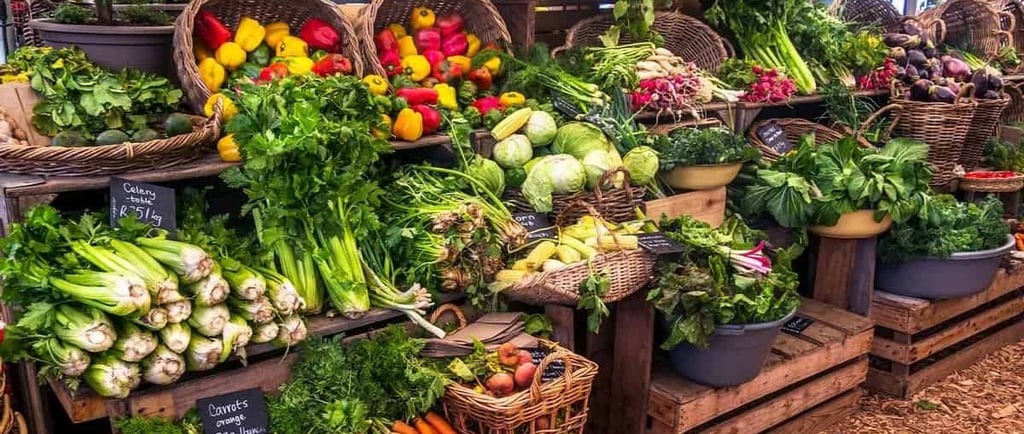Farmers’ Markets: A Path to Sustainability
The blog explores how farmers' markets contribute to sustainability by promoting local produce, reducing carbon footprints, and fostering community engagement. It highlights the benefits of these markets for consumers, farmers, and the environment, emphasizing their role in supporting sustainable agriculture, minimizing food waste, and encouraging eco-friendly consumption habits. The article also discusses how businesses and individuals can contribute to a greener future by choosing locally sourced, organic products.


In today’s world, where sustainability is more important than ever, even small lifestyle changes can have a big impact. One simple yet meaningful shift is choosing to shop at farmers’ markets. Not only do they offer fresh, locally grown produce bursting with flavor, but they also support local farmers, reduce environmental impact, and create a stronger sense of community. By making this switch, you’re not just buying food—you’re making a conscious choice to support a healthier planet and a more sustainable way of living.
Why Farmers’ Markets Are a Sustainable Choice
Lower Carbon Footprint
Unlike supermarket produce that travels thousands of miles, local farmers’ market goods come straight from nearby farms. That means less fuel consumption, fewer emissions, and fresher food on your plate.
Support for Local Farmers
Buying directly from farmers helps sustain small-scale agriculture, reducing reliance on large industrial farms that use heavy chemicals and unsustainable practices. Your purchase keeps local farms thriving.
Encouraging Seasonal Eating
Seasonal fruits and vegetables grow naturally with the environment, needing fewer artificial inputs. They taste better, pack more nutrients, and don’t require preservatives for long-distance transport.
Less Plastic Waste
Supermarkets often over-package food in plastic. At farmers’ markets, you can bring your own reusable bags, jars, and containers—helping cut down on waste and embracing a zero-waste lifestyle.
Minimizing Food Waste
Farmers’ market produce is fresh and often picked just before sale, meaning it lasts longer. Plus, you can buy only what you need, reducing waste from bulk purchases that may go unused.
Making the Most of Your Farmers’ Market Visit
Plan Your Purchases
Know what’s in season and create a shopping list to ensure you buy only what you need while avoiding unnecessary purchases.
Bring Reusable Bags and Containers
Help reduce plastic waste by carrying your own cloth bags, jars, and reusable produce bags.
Ask Questions
Engage with farmers about their growing practices, pesticide use, and harvesting methods to make informed choices.
Buy in Bulk and Share
If you find a great deal on bulk produce, consider splitting it with friends or family to maximize savings and minimize waste.
Try Something New
Farmers’ markets often have unique, heirloom, or lesser-known fruits and vegetables. Experimenting with these can add variety to your diet while supporting biodiversity.
A Simple Step for a Greener Future
Shopping at farmers’ markets is an easy yet impactful way to live more sustainably. By choosing fresh, local, and seasonal food, you help reduce environmental impact, support small farmers, and enjoy healthier, more flavorful produce. Take a step towards a more eco-friendly lifestyle—visit your nearest farmers’ market and make sustainability a part of your daily routine.
Experience sustainable living at the Clayworks Farmers’ Market on March 22 at Clayworks Create, open from 9 AM to 7 PM.

